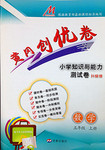题目内容
| |||||||||||||||||||||||||||||||||||||||||||||

 黄冈创优卷系列答案
黄冈创优卷系列答案阅读理解
New York , May 25?
Millions of volunteers (志愿者)joined in a long chain spreading 4 125 miles across the world's richest nation Sunday and burst into songs , reaching the highest
development in the Hands Across America road to raise ![]() 50 million for the nation's homeless and hungry.
50 million for the nation's homeless and hungry.
The chain began with a 6-year-old homeless girl named Amy in New York's Buttery Park. It spread across 16 states and Washington, D.C. where it crossed the White House to the Queen Mary's port in California. The last people in the line were Bill and Mary Jones and their five small children, who lived in a family shelter (收容所) for the homeless in Venice, California.
The chain was not unbroken some gaps were planned for safety, others opened where there were not enough people to cover the ground. But along most of the route, the healthy joined the sick, beautiful film stars , homeless beggars , wealthy artists , poor children and President and Mrs Regan all took places in the long line.
1.What is the main idea of the passage?
[ ]
A.Millions of volunteers support the poor.
B.The longest line is waiting for support.
C.The homeless and poor need help.
D.The richest nation faces the problem.
2.The underlined word “raise” in the first paragraph means _______.
[ ]
|
A.try to lift |
B.manage to collect |
|
C.bring up |
D.join up |
3.From the article, we know that the volunteers were made up of ________.
[ ]
A.both the homeless and the poor
B.the government officials, including President Regan
C.people in every field
D.people of 16 states except Amy
4.What do you think of the people in the chain spreading 4 125 miles?
[ ]
|
A.They were hand in hand. |
B.They were in good order. |
|
C.They were troublesome. |
D.They were planned for safety. |
5.Although the United States is a developed country, ________.
[ ]
A.there is still a rebellion sometimes.
B.there is still many people waiting for jobs
C.there are still some family shelters
D.there are still many social problems to be solved.
阅读理解
New York , May 25?
Millions of volunteers (志愿者)joined in a long chain spreading 4 125 miles across the world's richest nation Sunday and burst into songs , reaching the highest
development in the Hands Across America road to raise ![]() 50 million for the nation's homeless and hungry.
50 million for the nation's homeless and hungry.
The chain began with a 6-year-old homeless girl named Amy in New York's Buttery Park. It spread across 16 states and Washington, D.C. where it crossed the White House to the Queen Mary's port in California. The last people in the line were Bill and Mary Jones and their five small children, who lived in a family shelter (收容所) for the homeless in Venice, California.
The chain was not unbroken some gaps were planned for safety, others opened where there were not enough people to cover the ground. But along most of the route, the healthy joined the sick, beautiful film stars , homeless beggars , wealthy artists , poor children and President and Mrs Regan all took places in the long line.
1.What is the main idea of the passage?
[ ]
A.Millions of volunteers support the poor.
B.The longest line is waiting for support.
C.The homeless and poor need help.
D.The richest nation faces the problem.
2.The underlined word “raise” in the first paragraph means _______.
[ ]
|
A.try to lift |
B.manage to collect |
|
C.bring up |
D.join up |
3.From the article, we know that the volunteers were made up of ________.
[ ]
A.both the homeless and the poor
B.the government officials, including President Regan
C.people in every field
D.people of 16 states except Amy
4.What do you think of the people in the chain spreading 4 125 miles?
[ ]
|
A.They were hand in hand. |
B.They were in good order. |
|
C.They were troublesome. |
D.They were planned for safety. |
5.Although the United States is a developed country, ________.
[ ]
A.there is still a rebellion sometimes.
B.there is still many people waiting for jobs
C.there are still some family shelters
D.there are still many social problems to be solved.
| |||||||||||||||||||||||||||||||||||||||||||||
| |||||||||||||||||||||||||||||||||||||||||||||||||||||||||||||||||||||||||||||||||||||||||||||||||||||||||||||||||||||||||||||||||||||||||||||||||||||||||||||||||||||||||||||||||||||||||||||||||||||||||||||||||||||||||||||||||||||||||||||||||||||||||||||||||||||||||||||||||||||||||||